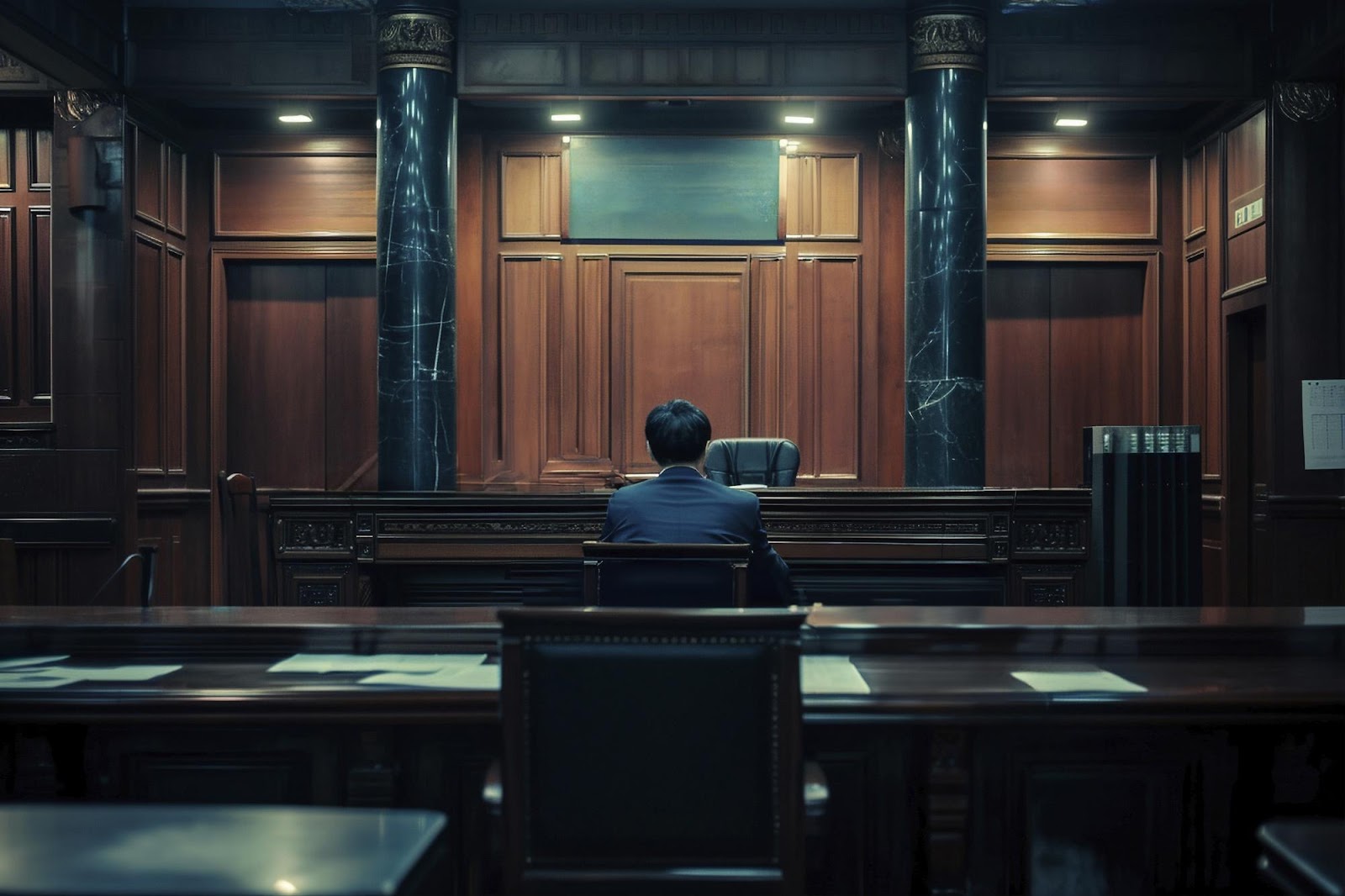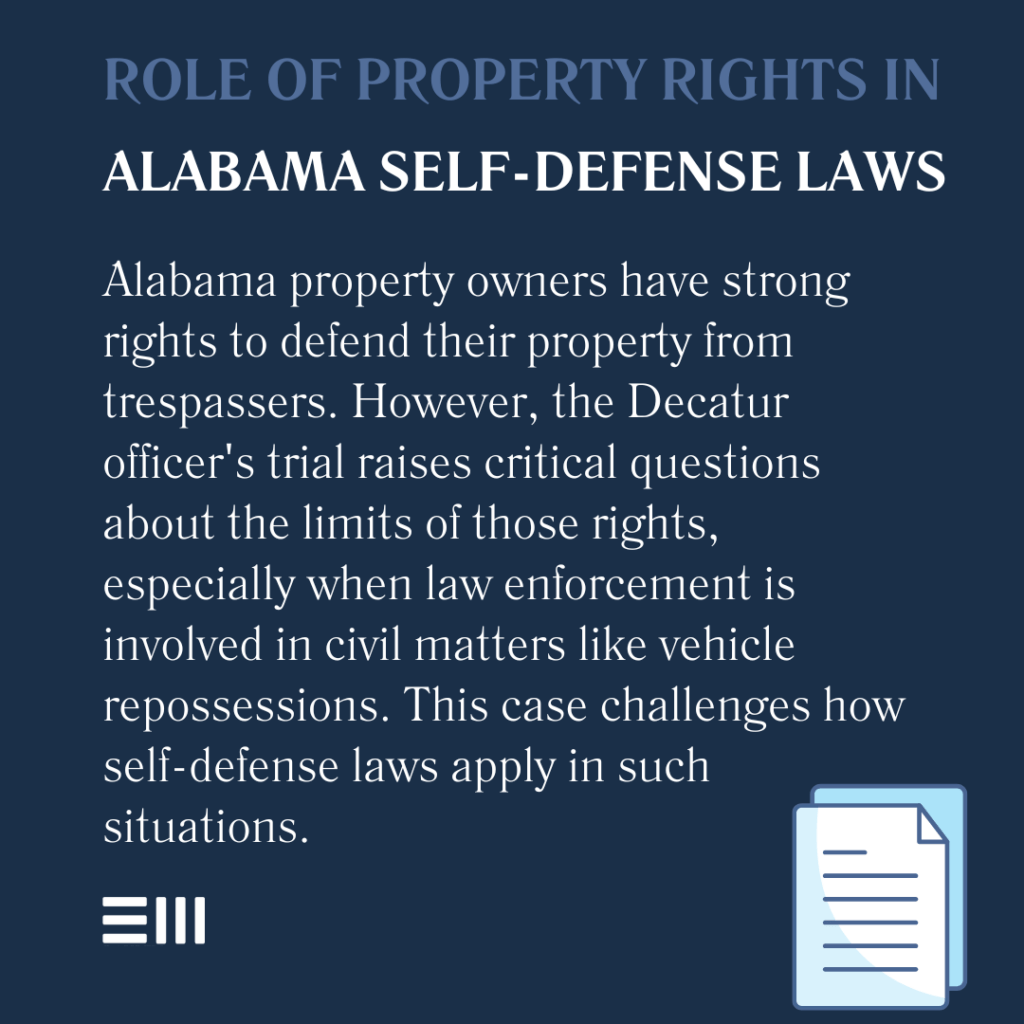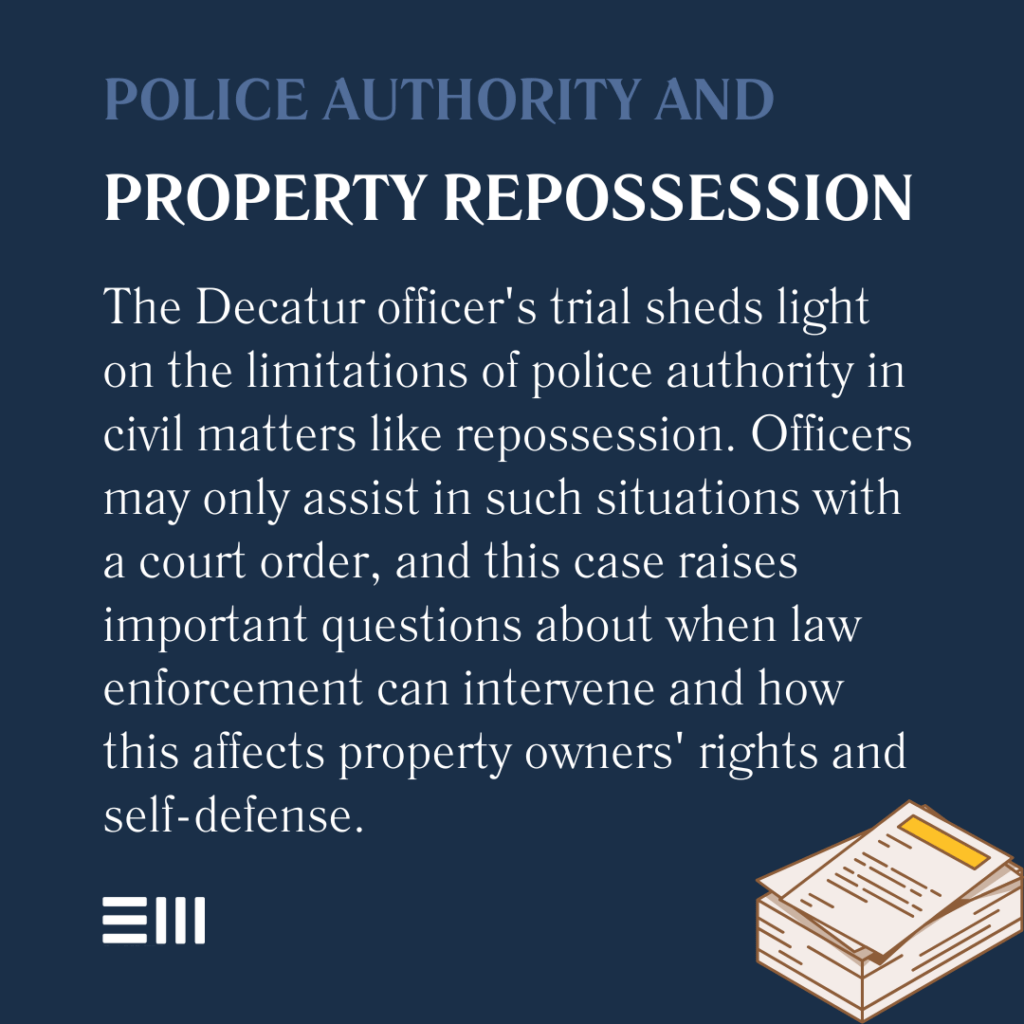
In a case that has captured statewide attention and sparked community protests, Morgan County Circuit Court Judge Charles Elliott is currently weighing a decision that could have far-reaching implications for property rights and self-defense laws across Alabama.
The murder trial of Decatur police officer Mac Marquette, 25, charged in the fatal shooting of Steve Perkins on September 29, 2023, hinges on a critical legal question: Did the officer have a legitimate right to be on Perkins’ property in the first place?
The Incident and Its Legal Context
According to court testimony, Marquette and two other officers accompanied a tow-truck driver to Perkins’ home shortly before 2 a.m. to repossess Perkins’ truck.
The repossession attempt ended with Marquette firing 17 shots, killing Perkins after Perkins allegedly briefly pointed a gun toward the officer.
The case brings Alabama’s “stand your ground” law into sharp focus. This law grants immunity from prosecution to individuals who use deadly force in self-defense, provided they are in a place where they have a legal right to be and reasonably believe they are in danger.
The Legal Argument: Authority to Enter Private Property
Prosecutors and defense attorneys presented starkly different views during the immunity hearing held on March 25-26, 2025.
Defense attorneys argued that Marquette and the other officers had an obligation to accompany the tow-truck driver, Caleb Combs, after Combs reported that Perkins had pointed a gun at him during an earlier repossession attempt.
“You have officers responding to a citizen’s request for help,” said Lance LoRusso, one of Marquette’s attorneys.
The prosecution, however, contended that Alabama law requires a court order if there is a “breach of the peace” during an initial repossession attempt. Without such an order, law enforcement is prohibited from assisting in the repossession.
Chief Assistant District Attorney Garrick Vickery argued, “There was no reason” for officers to be at Perkins’ house without a court order. Vickery further noted, “There was no way that Steve Perkins could have known that police were on the scene until about one and a half seconds before he was shot and killed.”
Broader Implications for Alabama Residents
This case raises significant questions about the intersection of property rights, law enforcement authority, and self-defense laws that affect all Alabama residents:
1. Property Owner Rights
Alabama homeowners have traditionally enjoyed strong property rights, including the right to defend their property from trespassers. This case challenges the boundaries of those rights when law enforcement is involved.

2. Police Authority Limitations
The trial highlights the specific limitations on police authority during civil matters like vehicle repossessions—an issue that affects many Alabama residents facing financial difficulties.
3. Self-Defense Law Application
The judge’s ruling will provide important clarification on how Alabama’s “stand your ground” law applies in confrontations involving law enforcement officers potentially operating outside their legal authority.

A Community Divided
The northern Alabama city of 60,000 people has experienced significant unrest following Perkins’ death, with protests continuing through the court proceedings. Judge Elliott reportedly had to issue warnings to silence outcries in the packed courtroom during the immunity hearing.
The case highlights tensions between law enforcement practices and community expectations regarding police conduct, particularly during civil matters that can escalate into deadly confrontations.
Procedural Questions Raised
Several procedural issues further complicate the case:
- Officer Christopher Mukadam, who was with Marquette, didn’t have his body camera on when he first spoke with Combs—a violation of department policy that cast doubt on his testimony that Combs requested an escort.
- Combs testified that he didn’t explicitly ask officers to accompany him.
- Video from Marquette’s body camera wasn’t entered into evidence during the immunity hearing.
These procedural inconsistencies highlight the critical importance of proper documentation in cases involving potential deadly force, especially when questions of legal authority are central to the outcome.
Legal Precedent at Stake
Judge Elliott’s decision will set an important precedent regarding law enforcement’s role in civil proceedings and could influence how similar cases are handled throughout Alabama in the future.
If the judge decides that Marquette was operating outside the scope of his duties as an officer, then Marquette will not be shielded by self-defense laws, and his trial will proceed in April.
Understanding Your Rights as an Alabama Property Owner
This case underscores the importance of understanding your rights as a property owner in Alabama, particularly regarding:
- The legal requirements for vehicle repossessions;
- When law enforcement can and cannot assist in civil matters;
- Your right to self-defense on your own property; and
- The proper procedures when confronted by individuals on your property after hours.
Being informed about these rights can prevent dangerous misunderstandings and potentially save lives, while also ensuring that proper legal procedures are followed in sensitive situations involving property disputes.
Protecting Your Legal Interests
Cases involving property rights, personal injury, and wrongful death require experienced legal representation to navigate the complex intersection of civil and criminal law.
Expert Legal Guidance Is Critical
Whether you’re facing issues related to property rights, confrontations on your property, or questions about self-defense laws in Alabama, consulting with knowledgeable attorneys who understand the nuances of state law is essential to protecting your rights.
Get Experienced Legal Support Today
If you’re facing legal challenges related to property rights, personal injury, or wrongful death in Alabama, Baxley Maniscalco is here to help. Our experienced attorneys have decades of combined experience representing clients in complex legal matters across the state.
Don’t navigate these challenging legal issues alone. Contact Baxley Maniscalco today at (256) 770-7232 to schedule a consultation, or visit our website to learn more about how we can assist you.
Our team is available via text, email, in person, and even through video meetings if it’s inconvenient for you to leave home. We’re dedicated to our clients and provide experienced, aggressive counsel when you need it most.
Can't find what you're looking for? Search our site below.










